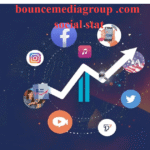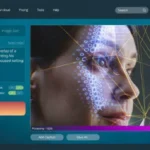In the complex world of healthcare, medication management represents a critical component of patient care, influencing treatment outcomes, patient safety, and overall healthcare costs.
Effective medication management is pivotal in preventing medication errors, improving adherence, and ensuring patients receive the maximum benefit from their prescribed treatments.
However, the traditional methods of managing medications can often be cumbersome, error-prone, and inefficient. This has led to an increased focus on developing simplified solutions to streamline medication management for both healthcare providers and patients.
The Challenges of Traditional Medication Management
Traditional medication management involves multiple steps – prescribing, transcribing, dispensing, administering, and monitoring. Each step carries the risk of errors due to manual processes and communication breakdowns among healthcare providers, pharmacists, and patients.
Additionally, patients with chronic conditions or those taking multiple medications face challenges in adhering to their treatment regimens, leading to suboptimal health outcomes and increased healthcare costs.
The Advent of Simplified Solutions
The integration of technology into healthcare has paved the way for innovative solutions to streamline medication management. These solutions aim to simplify the process, reduce the potential for errors, and enhance patient engagement and adherence. Here are some key strategies and tools that are transforming medication management:
1. Electronic Prescriptions
Electronic prescribing (e-prescribing) systems allow healthcare providers to send prescriptions directly to pharmacies digitally. This eliminates the need for handwritten prescriptions, reducing the risk of transcription errors and lost orders. E-prescribing also facilitates prescription tracking and management, making it easier for providers to review patient medication histories and make informed decisions.
2. Medication Management Apps
Smartphone apps designed for medication management offer patients a convenient way to manage their prescriptions, set reminders for medication intake, and monitor adherence. Many of these apps also provide educational resources about medications and their side effects, empowering patients to take an active role in their treatment.
3. Pharmacy Dispensing Robots
Automated dispensing robots in pharmacies are improving the accuracy and efficiency of medication dispensing. These robots can store, retrieve, and dispense medications with high precision, reducing the risk of dispensing errors. They also free up pharmacists’ time, allowing them to spend more time counseling patients and answering questions.
4. Smart Pill Bottles and Packaging
Innovations such as smart pill bottles and packaging equipped with sensors can track when medications are taken and remind patients to take their pills if they forget. Some smart packaging solutions also include features like tamper-evidence and controlled dispensing to enhance medication safety.
5. Telepharmacy
Telepharmacy services enable patients to consult with pharmacists remotely via video calls or messaging. This is particularly beneficial for patients in rural or underserved areas, where access to pharmacy services may be limited.
Telepharmacy consultations can help ensure patients understand their medications, address any concerns about side effects, and discuss potential drug interactions.
6. Integrated Healthcare Systems
Integrating medication management systems with broader healthcare IT infrastructure, such as Electronic Health Records (EHRs), allows for seamless sharing of patient information among healthcare providers.
This holistic view of a patient’s medication history, allergies, and health conditions facilitates coordinated care and informed decision-making.
The Impact of Streamlined Medication Management
Simplified medication management solutions can greatly impact patient care and outcomes by reducing errors, improving safety, and enhancing adherence. Empowering patients with tools for self-management fosters engagement in their health care.
Integration of mental health EMR software is a significant step, aiding psychiatrists in decision-making and supporting patients with mental health conditions. This approach highlights the role of technology in advancing patient-centered care in mental health.
Conclusion
Streamlining medication management through simplified solutions is essential in today’s healthcare landscape. By leveraging technology and innovative approaches, we can address the challenges of traditional medication management, reduce errors, and improve patient adherence.
These advancements not only enhance patient safety and health outcomes but also contribute to more efficient and effective healthcare delivery. As we continue to innovate and integrate these solutions, the future of medication management looks promising, with improved care and empowerment for patients at its core.










